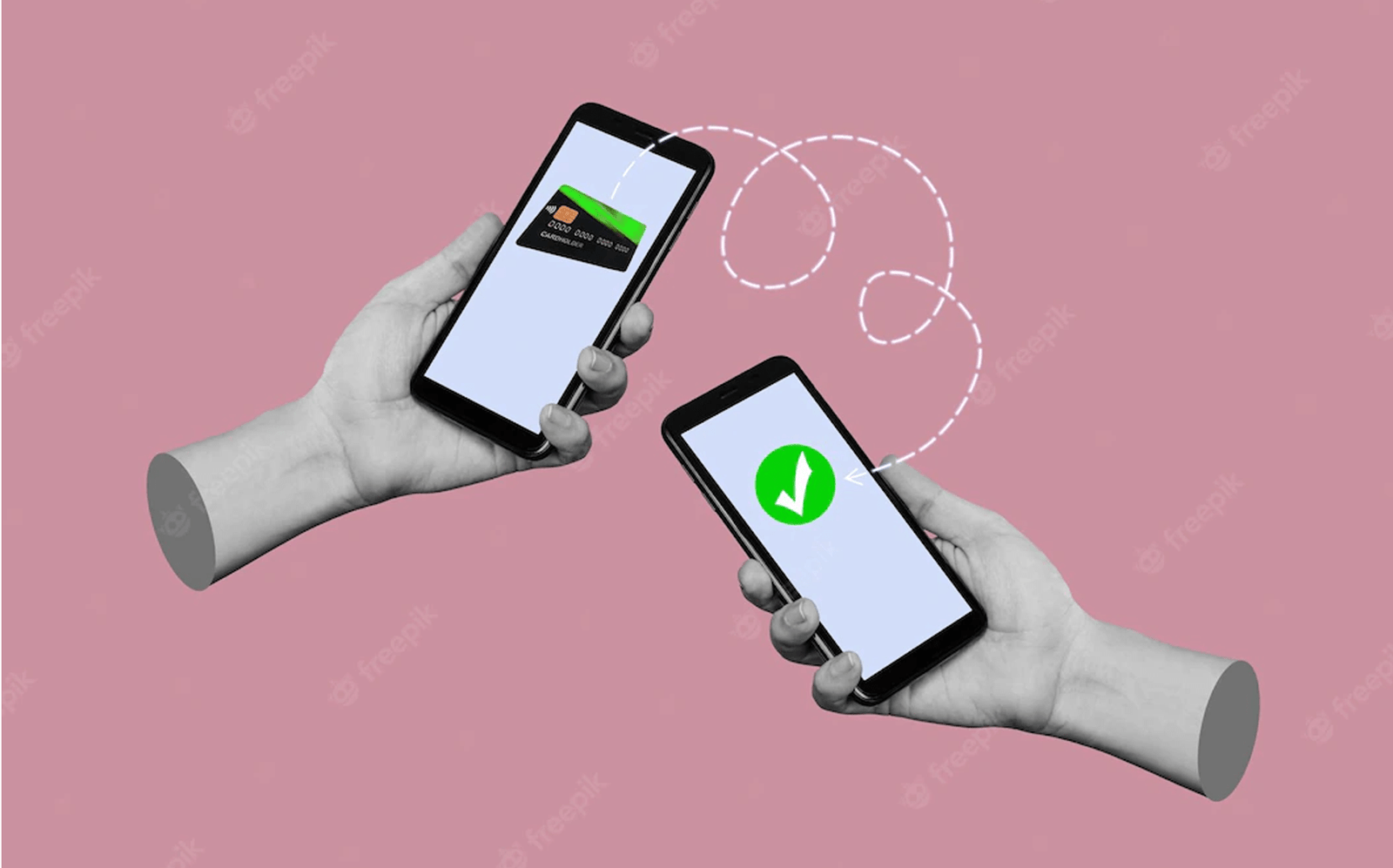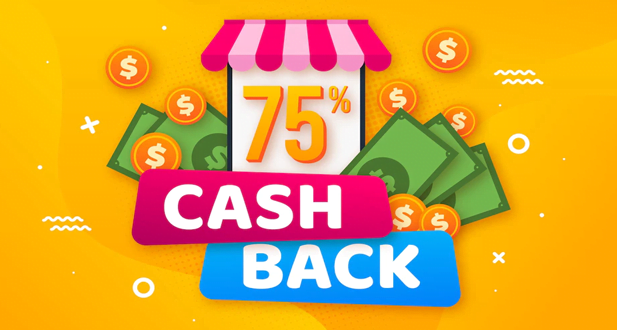Cashback Offers
When you use your credit card to make purchases, you can earn cash back through cashback offers, which are also referred to as cashback. While some credit cards offer the same amount of cash back on all purchases, others give a higher percentage in certain spending categories. Receiving a portion of your credit card transactions in cash is referred to as cashback. For instance, you can automatically earn a 2% Cashback Bonus at Restaurants and Gas Stations on up to 1,000 rupees in combined purchases each quarter with a credit card. Every cash-back credit card has its own set of restrictions, but most provide a consistent percentage of cash back on all purchases, with some possibly providing higher percentages in certain categories. There could be fixed bonus cash back categories or revolving categories that, at certain times of the year, earn a higher percentage of cashback. The amount of cashback you can receive might also be capped. Although other credit card issuers’ cash-back benefits can have expiration dates, Discover’s do not. It’s essential to cashing in your rewards as soon as you can if your cashback has an expiration date. Customers who participate in cashback rewards programs can earn a portion of their online purchases. Originally a credit card feature, it is now accessible from brick-and-mortar establishments, online retailers, and UPI apps. Cashback programs’ main objective is to persuade customers to make purchases or conduct online transactions through their app. On many online buying, ticketing, hotel booking, and bill-paying platforms, you can earn cashback, reward points, or scratch cards. Additionally, PayTM extends some of these promotions to its loyal clients. For using their services such as paying utility bills, sending money to someone, or using any other service PayTM typically provides cashback, reward points, or discounts on particular websites. People who are familiar with the app are aware of how the reward programs operate, but a sudden cashback message can draw in a new user.
Types of cashback
- Flat-Rate cash back cards – The most popular kind of credit card on the market provides a flat rate of 1-2% cash back on purchases. But regardless of the type of shopping done, the cashback stays the same.
- Cashback credit cards plus bonus categories – It is often referred to as a graded credit card that offers rewards based on the kinds of purchases made by clients each year. Less than the flat rate card, the spending reward.
- Rotating Bonus type cashback cards – The majority of these cards offered 1% cashback on all purchases, excluding bonus purchases.
- Cashback cards having customizable bonus types – The cardholder’s designated spending categories may be customized. Additionally, one can decide which purchase category receives the greatest cash rewards.
Advantages of Cashback offers
- Cashback is a feature that comes with all credit cards.
- The credit card does not charge an annual fee.
- The businesses provide numerous shopping advantages.
- Numerous credit card issuers offer 0% APR.
- Credit card companies do not reduce the value of cashback.
- Every card offers sign-up bonuses.
Disadvantages of Cashback offers
- The annual percentage rate, or APR goes up over time.
- On the cashback cards, foreign transaction fees occasionally apply.
- Numerous credit cards offer cashback up to a set maximum.
- Few credit cards allow for the activation of travel rewards.
- Cashback earnings could be hampered by interest payments on credit card balances.
- Credit card default raises the annual percentage rate.
How does cashback offer scam or fraud work
A random browser alert that states, “Cashback Online Trap” is the first indication of its existence “Congratulations! Yours is the Paytm Scratch Card.”
Others interested in the cashback offer from a link are more likely to click on it than those who aren’t. They are directed to Paytm-cashoffer.com, a website they have never been to, by this notification.
It states that the user has received a payback of Rs 2000. They are then instructed by the website to have this cashback award sent to their Paytm account. A new user might completely miss it because it resembles the official app so closely. They are taken to the original Paytm app already installed on their device after clicking the send button. The cashback amount is then “paid” to them there. People make the purchase without realizing they are making a payment rather than receiving the intended amount. Scammers take advantage of the emotions of the person using this method. This scam or fraud works by tricking customers into believing they have won a sizable cashback, which is then used as a crutch to make them forget that they are actually “sending” or “paying” something else.
The fraud targets those who don’t know how a UPI-based app operates. If you don’t have the UPI payment app installed on your phone, this scam won’t work. Only smartphones are compatible with this scam; computers are not. When you click the link, a different cashback offer is displayed to you each time. An online cashback fraud has also targeted PhonePe. Criminals call random people on the phone and pretend to be representatives of PhonePe. They convince the individuals that they are the winners of a cashback prize and ask them to click the reward button.
Sensitive information regarding bank accounts and other online banking credentials was often found to have been leaked when customers who received such calls completed the transactions by hitting the RewardPe button and had money taken out of their accounts.
Cashback offers fraud through UPI
- Phishing scam – This scam involves the sending of payment links via SMS by scammers. These phony bank URLs will resemble the genuine URL almost exactly. When you click on that link, your phone’s UPI payment app will open, allowing you to select any app for an auto-debit. The funds will be immediately taken out of the UPI account after your approval. Additionally, a virus or malware will infect the phone, allowing it to steal any saved financial information.
- Unverified links – Unknown to many users is the fact that using the UPI app to receive money does not need scanning a QR code or entering your UPI pin. Hackers frequently provide phony URLs with the ability to demand payment. When you click on this link, a code or your UPI pin will be requested. Your financial information is at risk as a result.
- Remote screen monitoring – There are situations when downloading an untrusted app from the app store can lead to a privacy violation and data leak. These third-party apps have the ability to access UPI app information and gather personal data from your phone, which might result in UPI fraud.
- Deceptive UPI Handles – Social media use is one of the many new tactics that con artists use to trick people. People may fall for fake pages on social media that have names that resemble legitimate ones. Providing your personal information on such websites is risky. The use of screenshots of your UPI handles can be used to trick you. Avoid placing these online in the public domain.
- Fake calls – Fraudsters will get in touch with you and pose as bank employees in order to get your UPI pin or ask you to download a third-party app for verification. This gives them access to your account information and personal data. Unless they come from reliable sources, it is preferable to ignore such inquiries.
- SIM Cloning – Since banks made OTP mandatory, interest in SIM cloning has surged. It is a relatively recent invention. If a con artist copies your SIM, they may even change the UPI PIN. The fraudster gets the victim’s bank account information and ID proof in order to reset the PIN.
- Money Mule – In the more sophisticated scam known as Money Mule, fraudsters obtain the victim’s data and then transfer funds to a middleman account to store the stolen goods. One of the money mules, this account is used to store money acquired from numerous victims.
- Malware – One of the most prevalent forms of cybercrime is malware, which can unintentionally be downloaded from a phishing email attachment or an unprotected website. The purpose of malware is to extract and copy data from the infected device.
How to stay away from cashback offer fraud or scam
There are numerous notifications that say you’ve won cashback or other incentives, but they’re actually frauds intended to steal your personal information. Clicking on these links without first verifying the source is not a smart idea. Look at the URL that shows at the top of the page to confirm the legitimacy of a website. Users should keep in mind that trustworthy websites and platforms for payments do not provide excessive rewards. Before clicking on any cashback offers they come across online, it is advised that consumers double-check them.
Keep in mind that giving out personal information on any websites operated by third parties can result in the loss of your data or money. By becoming knowledgeable about internet security and refraining from providing personal information on untrusted websites, users can protect themselves. Never forget that the only place you can find “genuine” cashback offers is inside the official Payment app, not on unofficial websites. They must also be wary of any unauthorized websites and never click on any notifications or links in texts or emails that offer free cashback or rewards if they want to be secure online.
- PayTM never provides cashback or reward points via an external link or a website owned by a third party. Your PayTM wallet or the bank account you’ve connected to the app will automatically receive any cashback you win.
- Users of the app are not required to visit any additional websites in order to receive cashback or reward points.
- Any cashback or reward deals that you might be qualified for won’t be alerted to you by your browser. New PayTM offers will be communicated to you via the PayTM app or your registered email address.
- The recipient should never click a link given by WhatsApp or SMS from an unknown sender. It’s recommended to disregard any offers from banks or cashback programs you might get through one of these providers.
- You don’t have to touch the “Pay” button or input your UPI PIN when you “get” money. A UPI PIN is required in order to transmit money or check your bank balance.
- Check the recipient’s identity before sending money.
- Always keep your bank account details and one-time password (OTP) confidential.
- The messages and links you receive from various platforms will contain a lot of hoaxes and false information. If you look closely, you might spot errors, a different design, or other strange behavior. Watch out for these warning signs so you can confirm the veracity of the data shown in the fake link.
- Whenever you download something, check sure the source is reliable. On rare occasions, hidden software will prompt you to download a copy of the original.
- Never use WhatsApp to scan an unauthorized QR code.
Conclusion
Peer-to-peer (P2P) and eWallet apps are becoming more and more popular among customers who shop online. These apps are becoming popular in India. These sites allow users to send money to family members who live in different states, pay for nearby services, and more. Peer-to-peer (P2P) transactions include an unidentified third party in more than half of all cases, making them particularly susceptible to fraud. Fraud has become more sophisticated as e-commerce, mobile payments, and computational power have advanced. When making financial transactions online, consumers need to exercise extra caution. They should never divulge their financial or personal information over the phone or online. I sincerely hope the information above keeps you from becoming a target of online cashback scams.
Frequently Asked Questions
Although many of these browser add-ons and apps are legitimate, you should always proceed with caution when a business guarantees substantial benefits for little effort.
The best way to recover money from cash-back apps is to either take advantage of the offer provided therein or, in the event that you do not receive the payback, seek assistance from the “need help” section and cash app support. To receive the money, one can open a ticket and select “dispute this transaction.”
When someone pays off their credit card balance in full each month and never misses a payment, cash-back credit cards do indeed work. Otherwise, the user may pay more in interest than the credit card company does in rewards.




